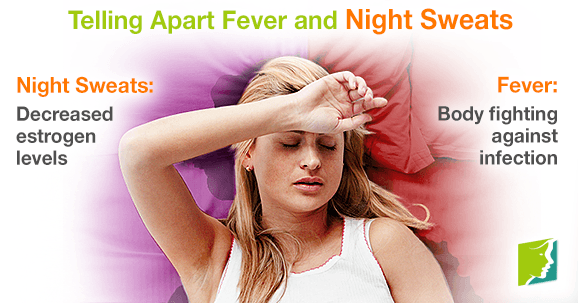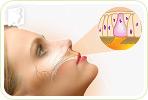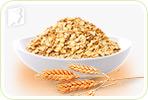It can be difficult to differentiate between fever and night sweats because both involve increased internal body temperature, excessive sweating, and flushing. During perimenopause - the years just prior to menopause - a woman is particularly prone to waking up sweating in the night, and it can be hard to know when the sweats are caused by menopause or when they are indicative of something more serious. Fevers occur when the body is fighting against infection, and sweating is a part of that.
Fever vs. Night Sweats
It's helpful to discover the causes of both fevers and night sweats to understand how the symptoms differ. Ultimately, the difference is that while menopausal night sweats are caused by hormones, and fever is caused by the body's immune system.
During perimenopause, the body decreases its estrogen production in preparation for menopause. This triggers a series of activities in the body that cause the hypothalamus (the body's internal “thermostat”) to falsely detect an increase in body temperature and then react to cool down by producing sweat.
Conversely, a fever is an event where temperature is elevated above normal body temperature (approximately 99.0 - 99.5° F or 37.5° C). If the body contracts an infection, white blood cell production increases to fight it. This increase in white blood cells affects the hypothalamus and causes a fever - a raise in internal body temperature where the skin flushes intensely and excessive sweat is produced - an outward indicator that the body is fighting the infection.
Despite differences in causes, the experience and external appearance of these symptoms is similar. Keep reading to learn which differences to look for to tell fevers and night sweats apart.
Have You Felt Any Coldness?
Before the sweating phase of a fever comes a “cold” stage, where the hypothalamus causes the blood vessels close to the skin to tighten in order to internalize body heat as much as possible. This leaves the outer layer of the skin cool, resulting in shivering as it attempts to warm up. Experiencing this prior to intense heat is suggestive of a fever.
How Long Does the Symptom Last?
Night sweats brought on by menopause are fleeting and likely to be reduced by removing your blankets, opening a window, or splashing your face with water. By contrast, fevers can last for up to five days (though generally they last one or two days), and cooling down is far more challenging.
Have You Experienced Other Symptoms?
Night sweats and fevers are both symptoms rather than conditions, so consider any other symptoms you have been experiencing to differentiate between the two. If you have suffered with other menopause symptoms, such as mood swings, hot flashes, or no other symptoms, it is most likely you are experiencing hormone-driven night sweats.
On the other hand, a fever is commonly associated with a number of infection-based illnesses, including the flu, bronchitis, pneumonia, strep, and meningitis. If you have a fever, it is likely that you are experiencing other debilitating symptoms alongside it. These ought to be manageable, but if you are notice quickening heartbeat, shortness of breath, a stiff neck or headache, a lack of urination, or your skin, nails, or lips turn blue, seek urgent medical attention.
In essence, although fevers and night sweating are similar in terms of experience, how long sweating lasts for and other accompanying symptoms are the clearest way of telling them apart. However, if you have any doubts, it is always best to consult your doctor to rule out any serious medical concerns.
Sources
- Cancer Research UK. (2012). What fever is. Retrieved January 30, 2014, from http://www.cancerresearchuk.org/cancer-help/coping-with-cancer/coping-physically/fever/what-fever-is
- Kaneshiro, N.K. (2012). Fever: MedlinePlus Medical Encyclopedia. Retrieved January 30, 2014, from http://www.nlm.nih.gov/medlineplus/ency/article/003090.htm
- Walker, H.K. , Hall, W.D. & Hurst, J.W. ed. (1990). Fever, Chills, and Night Sweats. In: Clinical Methods: The History, Physical, and Laboratory Examinations. Boston: Butterworths. Retrieved from http://www.ncbi.nlm.nih.gov/books/NBK324/




